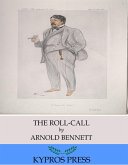In "The Roll-Call of the Reef," Arthur Quiller-Couch presents a richly textured narrative that immerses readers in the maritime life of Cornwall's rugged coast. This work blends vivid descriptions and intricate characterizations with an engaging lyrical style, offering a compelling exploration of the relationship between man and the sea. Through a series of interconnected stories, Quiller-Couch weaves themes of love, loss, and the indomitable spirit of seafaring folk, all set against the dynamic backdrop of the ever-changing ocean. The book reflects the early 20th-century literary context of romanticism and realism, showcasing a deep appreciation for nature and the complexities of human experience. Arthur Quiller-Couch, often regarded as a key figure in English literary circles, was influenced by his upbringing in Cornwall and his familiarity with the region's folklore and local color. His passion for storytelling and his profound knowledge of literature are evident in this collection, which draws on the oral traditions of his homeland. Quiller-Couch's extensive academic background and editorial roles further enriched his narrative technique, allowing him to craft a profound exploration of identity and place. "The Roll-Call of the Reef" is a must-read for those who appreciate lyrical prose and intricate character studies. Readers will find themselves captivated by the interplay of human emotion and the magnificent, yet often merciless, sea. Quiller-Couch's work invites you to ponder the interconnectedness of life's ebbs and flows, making it not only a literary journey but also a reflection on the human condition.
Dieser Download kann aus rechtlichen Gründen nur mit Rechnungsadresse in A, B, BG, CY, CZ, D, DK, EW, FIN, F, GR, H, IRL, I, LT, L, LR, M, NL, PL, P, R, S, SLO, SK ausgeliefert werden.
Hinweis: Dieser Artikel kann nur an eine deutsche Lieferadresse ausgeliefert werden.









